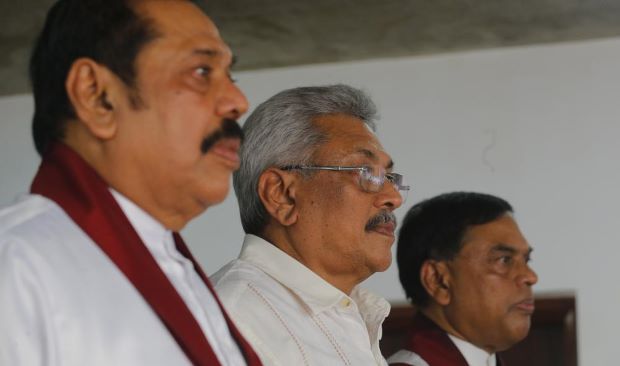Accountability time for Sri Lanka’s Rajapakse clan?
By Richard Messick
In a ground-breaking order issued October 7, Sri Lanka’s Supreme Court ordered five members of the Rajapakse family and accomplices to answer for driving the once prosperous nation into bankruptcy.
While Gotabaya was president and three brothers and a nephew ministers, the government took on ever greater levels of foreign debt while recklessly cutting taxes and pursuing unsustainable monetary policies. The result: the economy is expected shrink by 8.7% this year, inflation recently exceeded 60%, and an additional 2.7 million Sri Lankans will likely fall into abject poverty (here and here).
As economic conditions deteriorated in late spring, the four Rajapkse ministers resigned, and Gotabaya later fled the country as protesters stormed the presidential residence (here). But though out of office, the Rajapakses are not out of power. They still control Parliament, and it picked a Rajapkse crony to serve the remainder of Gotabaya’s term as president.
With Parliament unlikely to hold the Rajapkses accountable for economic mismanagement and the corruption that underlay it, civil society turned to the one institution in the country that remained largely untouched during the Rajapakse’s misrule: the judiciary. Last June Transparency International Sri Lanka (TISL) and three prominent Sri Lankans asked the nation’s highest court to hear their claim that the result of the Rajapakses’ economic mismanagement their constitutional rights to equal treatment, freedom to pursue gainful work, and access to government information had been denied. The petition further asks that:
- the Central Bank, Finance Ministry, and other agencies be required to produce documents chronicling the mismanagement,
- a committee be empanelled to examine the documents and compile a report, and
- the Attorney General be directed to investigate and prosecute any wrongdoing disclosed.
For those fortunate enough to live in functioning democracies, this action would be extraordinary. A request that a court assume the powers of a legislature and hold those in charge of the government accountable for their actions.
But given the power the Rajapakses accumulated during their long period in office, it appears to be the only path to accountability. And to the restoration of the democratic freedoms Sri Lanka’s constitution promises all citizens. Citizen activists, believers in the rule of law, and democrats everywhere will be hoping Sri Lanka’s judiciary can meet this unprecedented challenge.
-globalanticorruptionblog.com



Comments are closed, but trackbacks and pingbacks are open.